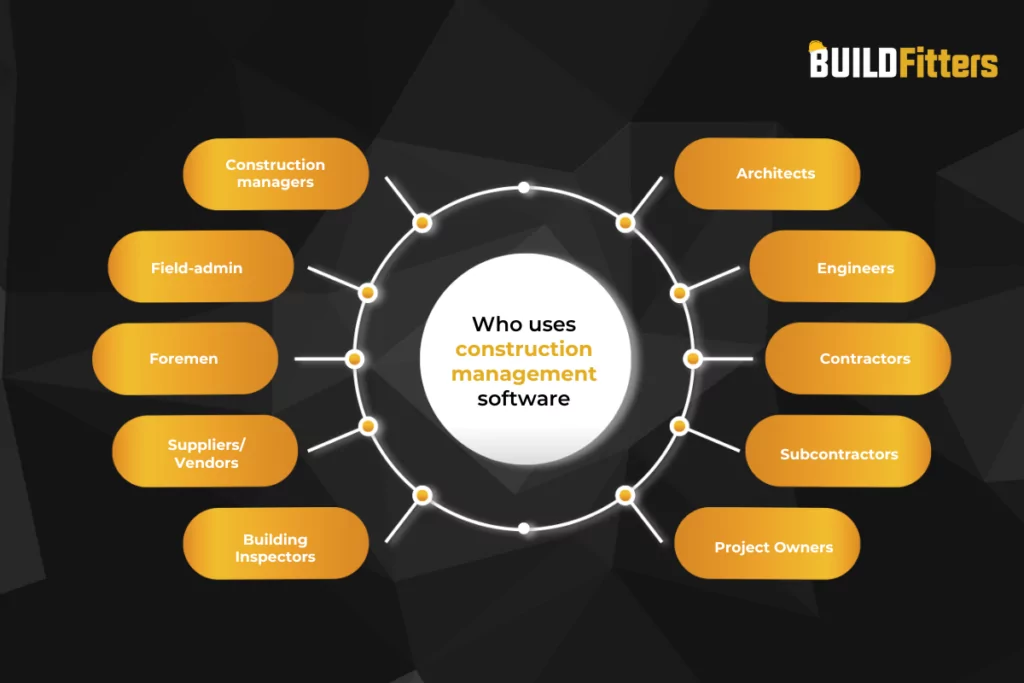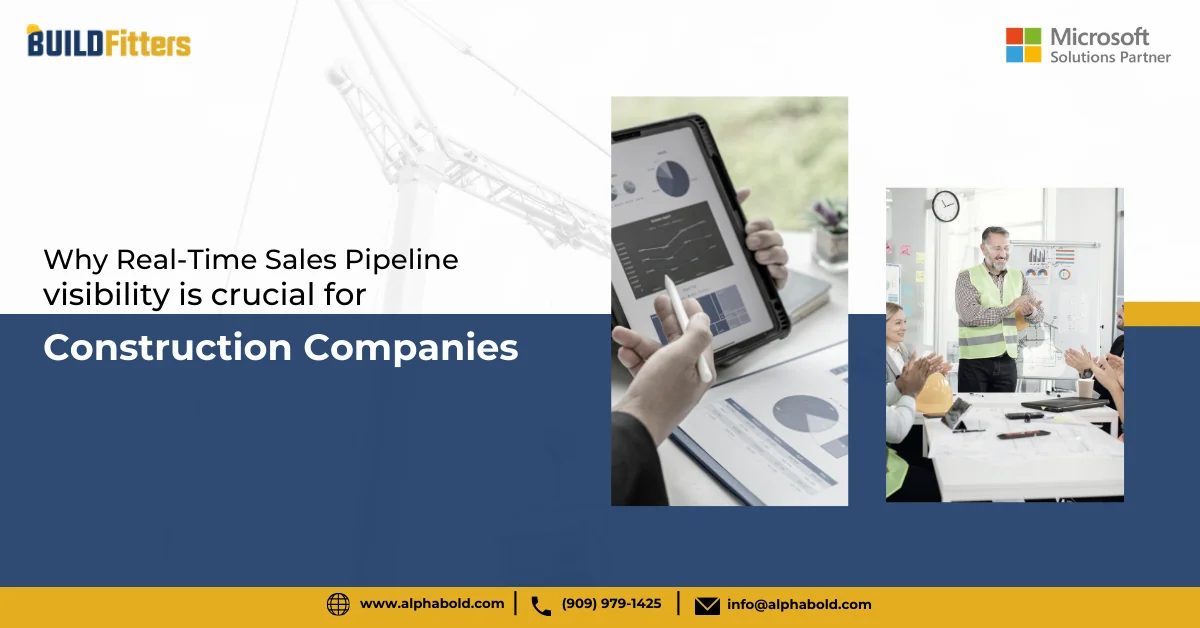
What is Construction Management Software?
Introduction:
Construction projects can be complex and time-consuming, often requiring the coordination of multiple teams and the tracking of various tasks and deadlines. That’s why understanding the benefits of construction management software is crucial for streamlining processes and improving efficiency.
In this article, we’ll explore the benefits of construction management software, the key features to look for when selecting a solution, and how to implement a software program into the construction operation successfully.
What is Construction Project Management Software?
Construction project management software is a digital tool employed to manage the planning, design, construction, and maintenance of building projects. This kind of software construction management solution aids in the streamlined coordination of project tasks, resources, schedules, budgets, and communication among team members.
Here’s how construction professionals can benefit from it:
- Streamlining project management
A pivotal benefit of construction management software is its ability to simplify project management. With a construction management software solution, construction companies can centralize all project information, ensuring all stakeholders have access to the most up-to-date information. This includes project schedules, budgets, personnel information, and more. In addition, construction management software solutions provide advanced project management tools, such as task assignment, task tracking, and resource allocation, that help companies to stay on top of their projects and keep them on schedule.
- Improving communication and collaboration
Another significant benefit of construction administration software solutions is improved communication and collaboration among team members. Construction management software lets all stakeholders access project information and communicate with each other in real-time, regardless of location. This allows for faster decision-making and reduces the risk of miscommunication. Additionally, construction management software solutions often include collaboration tools, such as team calendars, discussion boards, and file-sharing capabilities, which help team members to work together effectively and efficiently.
- Enhancing financial management
Construction management software solutions can also help to improve financial management by providing real-time financial information, including project budgets and costs. This allows construction companies to manage their financial resources better and make informed decisions about their projects. In addition, construction management software solutions can provide advanced financial management tools, such as invoicing and expense tracking, to help companies streamline their financial processes and improve their bottom line.
- Increasing efficiency
Construction management software solutions can also increase efficiency by automating many manual tasks involved in construction projects. This includes scheduling, budgeting, resource allocation, document management, and tracking. By automating these tasks, construction companies can reduce the risk of errors, save time, and increase efficiency.
- Better project visibility
Construction management software provides real-time insights into the status of a project, allowing construction professionals to identify and resolve issues quickly. With access to real-time project data, construction professionals can make informed decisions that can positively impact the project’s budget, timeline, and overall success.
Key Features to Look for in Construction Project Management Software:
When zeroing in on construction management software requirements, it’s prudent to consider these features:
- Project management: Look for a solution that provides tools to manage tasks, deadlines, budgets, and resources.
- Collaboration and communication: Choose a solution that includes collaboration and communication tools, such as file sharing, team messaging, and document management.
- Reporting and analytics: A solution with robust reporting and analytics capabilities will help you track project progress, identify areas for improvement, and make data-driven decisions.
- Mobile compatibility: With more construction professionals working on the go, it’s essential to select a solution that offers mobile compatibility for accessing project data and collaboration tools from anywhere, anytime.
- Integration with other tools: Look for a solution that integrates with other construction tools, such as CAD software and estimating software, for a seamless workflow.
Remember not to Settle for Standard When you can Achieve Excellence!
Discover the comprehensive suite of features that BUILDFitters brings to the construction management industry. Elevate your project workflows and set new standards for success.
Implementing Construction Management Software:
Launching construction administration software can seem overwhelming, but with proper planning and execution, it can be a smooth process. Here are some steps to help ensure success:
- Define your needs: Determine what features and capabilities are essential to your construction operation and select a solution that meets those needs.
- Plan the implementation: Develop a plan for implementing the software, including defining roles and responsibilities, setting timelines, and identifying potential roadblocks.
- Provide training: Ensure all stakeholders are trained on using the software, including how to access project data, collaborate with team members, and utilize the reporting and analytics tools.
- Monitor and adjust: After implementation, monitor the use of the software and make any necessary adjustments to ensure its effectiveness and maximize its potential benefits.
Furthermore, the choice of construction project management software isn’t the sole decision to make; the software provider’s credentials matter too. Without the proper support, even the best construction software can do no good for a company.
The biggest mistake construction professionals make is that they run to the first big name in the market for their construction management needs. However, inflated companies can no longer provide businesses with the required dedicated services.
Customer support and best implementation practices can make or break a business. That’s where software construction management solutions like BUILDFitters shine.
Read more about Construction Scheduling Software features in an all-in-one Solution
BUILDFitters for Improved Construction Project Management:
BUILDFitters is a top-tier construction management software for every project lifecycle phase. From sales, preconstruction, construction, and postconstruction, BUILDFitters is populated with critical features that streamline the construction project.
The solution is designed keeping in mind the various stakeholders that come together in a construction project and thus caters to general contractors, subcontractors, subspecialty contractors, project managers, field admins, and foremen alike! It also comes with a range of analytics apps that help further refine construction project processes.
Conclusion:
In conclusion, construction management software can help streamline processes, improve efficiency, and drive project success.
When selecting a solution, construction project managers should look for key features, such as project management, collaboration and communication tools, reporting and analytics, mobile compatibility, and integration with other tools.
With proper planning and execution, implementing construction management software can be a smooth process that provides long-term benefits for your construction operation.
Furthermore, experienced and dedicated software solutions such as BUILDFitters can help companies improve their overall capabilities and achieve their project goals on time and within budget.
Ready to Transform your Construction Management Journey?
Struggling with construction scheduling? Partner with BUILDFitters for expert support. Request assistance and streamline your construction operations with ease!
F.A.Q.s
- Is CMS suitable for small construction firms? Yes, CMS can benefit small construction firms by improving project management and resource allocation.
- Can CMS be customized to specific project needs? Many CMS solutions offer customization options to tailor the software to specific project requirements.
- Is CMS user-friendly for non-technical users? Most CMS platforms are designed to be user-friendly, with intuitive interfaces that require minimal technical expertise.
- How does CMS handle collaboration among remote teams? CMS facilitates collaboration through cloud-based access, ensuring remote teams can work seamlessly.
- Is data backup and security ensured with CMS? Yes, reputable CMS providers prioritize data backup and security measures to protect project information.




